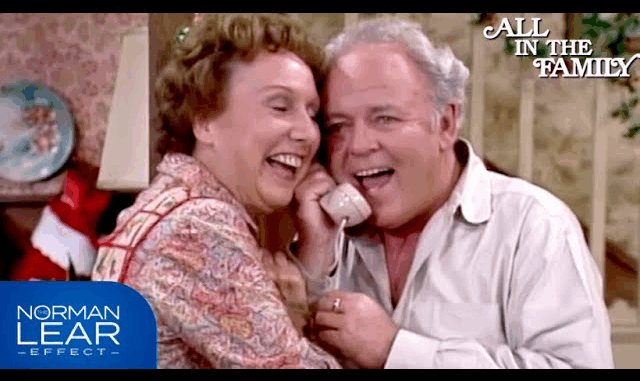
When All in the Family premiered on CBS in January 1971, few could have predicted the cultural shockwave it would send through American television. Created by Norman Lear, the sitcom revolutionized primetime TV by blending humor with controversial and deeply resonant social issues. Over five decades later, the show’s impact is still felt, making it not just a TV classic, but a milestone in American media history.
Breaking New Ground in Television
Unlike the light-hearted sitcoms of the 1960s, All in the Family tackled taboo topics head-on. Racism, sexism, homophobia, war, class struggle, and generational conflict were all part of the weekly script. At the heart of the show was Archie Bunker, played brilliantly by Carroll O’Connor—a working-class, conservative patriarch whose blunt views sparked debate in households across the nation.
Archie wasn’t just a character; he was a mirror. Through him, All in the Family dared to reflect the prejudices and fears of a rapidly changing America. The show’s unfiltered language and realistic family dynamics were groundbreaking, prompting both outrage and admiration.
A Cast That Defined an Era
The chemistry between Carroll O’Connor (Archie), Jean Stapleton (Edith), Rob Reiner (Michael “Meathead”), and Sally Struthers (Gloria) brought authenticity and emotional depth to the series. Their interactions were raw and unscripted in feel, often shifting from comedic banter to heartfelt confrontation. The casting was so iconic that even decades later, these actors are still most associated with their All in the Family roles.
Cultural Impact and Legacy
All in the Family wasn’t just a ratings giant—it was a national conversation starter. It won numerous Emmy Awards and spawned several spin-offs, including Maude, The Jeffersons, and Good Times, all of which carried forward Lear’s commitment to socially conscious storytelling.
In 2002, TV Guide ranked All in the Family fourth on its list of the “50 Greatest TV Shows of All Time.” The show’s impact on political discourse, media representation, and the evolution of sitcoms cannot be overstated. It created space for TV to be more than just entertainment—it could now be a platform for meaningful discussion.
Relevance in Today’s World
Even in 2025, All in the Family feels startlingly relevant. The themes it explored—political division, generational conflict, and social justice—remain front and center in American society. Streaming platforms have reintroduced the show to new generations, allowing younger viewers to understand the roots of modern TV storytelling.
Conclusion
All in the Family is more than just a television show—it is a bold statement on the power of media to challenge, provoke, and inspire. In a time when authenticity and representation are more important than ever, revisiting this classic reminds us how far we’ve come—and how much further we still have to go.
